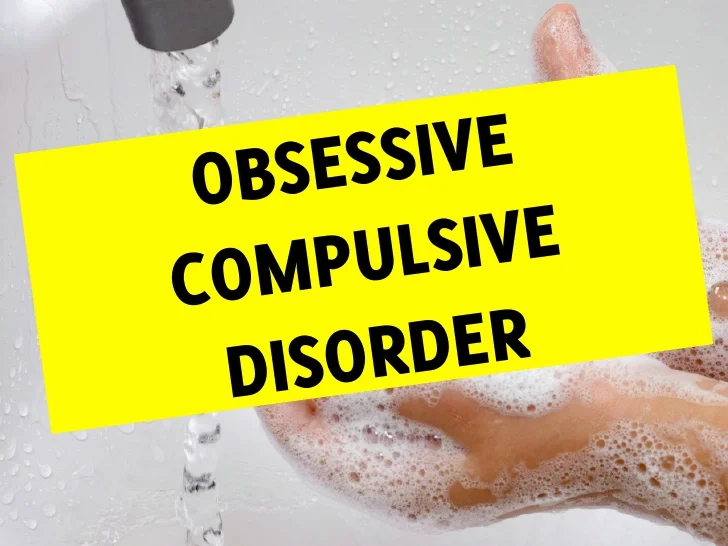
Share this
Facts you should know about obsessive-compulsive disorder (OCD)

While it is sometimes confused with OCD, characteristics of obsessive-compulsive personality disorder (OCPD) include perfectionism and an unyielding expectation that the sufferer and others will adhere to a rigid set of rules.
- Obsessive-compulsive disorder (OCD) is one of a number of obsessive-compulsive and related disorders that has irresistible ideas or images (obsessions) and/or specific rituals/behaviors or mental acts (compulsions) that may be driven by obsessions as characteristics of the illness.
- OCD occurs in a small percentage of populations worldwide in every culture.
- The average age for OCD to begin is 19 years of age, and it usually begins by the time the individual is 30 years old.
- People with OCD are at risk of also suffering from anxiety disorders.
- While there is no known specific cause for OCD, having other family members with the condition and an imbalance of the brain chemical serotonin increase the likelihood of OCD occurs.
- A health care professional diagnoses OCD by looking for signs and symptoms of this and other emotional problems, as well as assessing for the presence of a medical condition that might be contributing to developing the disorder.
- OCD most likely improves when treated with a combination of behavioral therapies like exposure and ritual prevention, group or individual cognitive behavioral therapy, and medications.
- Although not thought to be as effective in treating OCD symptoms as clomipramine (Anafranil), SSRIs are the group of medications that physicians most often use to treat this illness since SSRIs tend to cause fewer side effects.
- SSRIs work by increasing the activity of serotonin in the brain.
- When the combination of psychotherapy and SSRI treatment does not produce adequate symptom relief, doctors may add a neuroleptic medication to improve the treatment outcome.
- For some people with severe OCD, deep brain stimulation can be helpful, and researchers continue to study treatment with hallucinogenic medications.
- Although the symptoms of OCD may last indefinitely, the prognosis for OCD sufferers is best when the person’s symptoms are milder and have been present for a short time, and the OCD sufferer has no other emotional problems.
- If left untreated, OCD can worsen to the point that the sufferer develops physical problems, becomes unable to function, or experiences suicidal thoughts. About 1% of OCD sufferers die by suicide.
What is obsessive-compulsive disorder (OCD)?
Obsessive-compulsive disorder (OCD) is now classified as one of a number of obsessive-compulsive and related disorders in the DSM-5. Repeated obsessions and/or compulsions that interfere with the sufferer’s ability to function in their relationships, at work, or in school, either because of all the time that is consumed by the symptoms or the marked apprehension, fear, or other distress suffered by the person characterize OCD.
Other separate kinds of obsessive-compulsive and related disorders include
- body dysmorphic disorder (preoccupation with at least one perceived flaw in one’s physical appearance that others do not observe);
- hoarding disorder (chronic difficulty discarding possessions);
- trichotillomania (hair-pulling disorder); and
- excoriation disorder (skin picking).
There is also OCD and related disorders that are caused by a medical condition or exposure to a substance.
Obsessions are recurrently intrusive or unrelenting, unwanted thoughts, impulses, or images that may cause severe anxiety. These ideas are irresistible to the OCD sufferer despite the person’s usually understanding that these ideas are irrational. That understanding may lead to their feeling guilt at being unable to resist having the ideas.
What are obsessive-compulsive disorder symptoms and signs?
Examples of obsessions include
- sexual obsessions;
- religious obsessions (scrupulosity);
- fear of germs/worries about cleanliness; and
- worries about safety or order.
A compulsion is a ritualistic or otherwise repetitive behavior or mental act that the individual with OCD engages in, because of their obsessions or according to rigid rules. Obsessive thoughts may cause compulsions like
- excessive hand washing;
- skin picking;
- lock checking;
- repeatedly going over intrusive thoughts;
- meaningless counting;
- repetition of one’s own words;
- repeatedly arranging items; and
- other repetitive actions.
Compulsive hoarding is also a manifestation of OCD.
In contrast to the repetitive behaviors of compulsions, habits are actions that occur with little to no thought, occur routinely, are not caused by an obsession, are not excessively time-consuming, and do not result in stress. Examples of habits include cracking knuckles or storing a wallet in a purse or pocket.
What causes obsessive-compulsive disorder?
- While there is no clear cause for OCD, family history and possible chemical imbalances in the brain contribute to developing the illness.
- While people who have relatives with the illness are at a higher risk of developing OCD, most people with the condition have no such family history.
- A specific genetic variation of the catechol-O-methyltransferase (COMT) gene potentially doubles the chances of a person developing OCD in general, as well as having a significant association with developing this disorder at an early age.
- An imbalance of the chemical serotonin in the brain may also contribute to the development of this disorder.
- Certain life stressors, like being the victim of childhood sexual abuse, are a risk factor for developing OCD during adulthood.
How is obsessive-compulsive disorder diagnosed?
Some health care professionals will give a self-test of screening questions to people whom they suspect may have OCD.
- One such scale, the Yale-Brown Obsessive Compulsive Scale (Y-BOCS), is a widely accepted measure of OCD symptoms.
- In addition to looking for symptoms of obsessive thoughts and compulsive behaviors by conducting a mental health interview and mental status examination, mental health practitioners will explore the possibility that an emotional disorder instead of or in addition to OCD causes the person’s symptoms. For example, people with addiction often have obsessive thoughts or compulsions, but those characteristics usually just involve the addiction.
- Individuals who suffer from narcissism may have obsessions, but those tend to be limited to self-obsession.
- The professional will also likely ensure that a medical examination and any other necessary tests consider whether there is any medical issue that could be causing any of the signs or symptoms of OCD.
What are the treatments for obsessive-compulsive disorder?
Most individuals with OCD have some symptoms of the disorder indefinitely, comprised of times of improvement alternating with times of increased symptoms. The prognosis for this disorder is most favorable for sufferers who have milder symptoms that have occurred for less time and who have no other medical or mental health issues prior to developing OCD.
Treatment of OCD includes
- cognitive behavioral psychotherapy,
- behavioral therapies, and
- medications.
Behavioral therapies for OCD include
- systematic desensitization therapy,
- aversion therapy,
- rational emotive behavior therapy, and
- ritual prevention and exposure therapy.
Prevention of rituals involves a mental-health professional helping the person with OCD endure longer and longer periods of resisting the urge to engage in compulsive behaviors. Exposure and response prevention therapy is a type of behavior modification that involves the individual getting in touch with situations that tend to increase their urge to perform compulsions and then helping the person resist that urge.
Cognitive/behavioral therapy begins with psycho-education of the OCD sufferer regarding their illness and works towards changing the negative ways of thinking and behaving associated with the anxiety involved with obsessive-compulsive disorder.
Selective serotonin reuptake inhibitors (SSRIs) are the medications that doctors prescribe most often to treat OCD. These medications increase the amount of the neurochemical serotonin in the brain. (Brain serotonin levels are low in OCD.) SSRIs work by selectively inhibiting (blocking) serotonin reuptake in the brain, specifically at the synapse, the place where brain cells (neurons) connect to each other. Serotonin is one of the brain chemicals that carry messages across synapses from one neuron to another.
SSRIs work by keeping serotonin present in high concentrations in the synapses. These medications do so by preventing the reuptake of serotonin back into the nerve cell that is transmitting an impulse. Since the reuptake of serotonin is responsible for turning off the production of new serotonin, the serotonin message keeps on coming through. This helps activate cells that have been deactivated by OCD, thereby relieving the symptoms of the condition.
Some studies show that SNRI medications can be effective alternatives to SSRIs. These medications increase the amount of the neurochemicals serotonin, epinephrine, and norepinephrine in the brain.
Mood stabilizers sometimes treat OCD, particularly in individuals who also suffer from bipolar disorder.
Studies on the effectiveness of treatment of OCD in adults have variable results. Some indicate that medications, response prevention, and CBT are equally, although only mildly to moderately, effective in treating this problem. Cognitive behavioral group psychotherapy (CBGT) is an effective treatment for OCD.
What are complications of obsessive-compulsive disorder?
Without treatment, the severity of OCD can worsen to the point that it consumes the sufferer’s life. Specifically, it can inhibit their ability to attend school, keep a job, and/or can lead to social isolation. Many people with this condition consider killing themselves, and about 1% die by suicide.
Regarding the prognosis for the specific symptoms, it is rare for any to progress to a physically debilitating level. However, problems like compulsive hand washing can eventually cause complications like the skin becoming dry and even breaking down, and trichotillomania can result in unsightly scabs on the person’s scalp.
What is the prognosis for obsessive-compulsive disorder?
- While in about 40% of people diagnosed with OCD the symptoms tend to persist indefinitely to some degree, most are only mildly to moderately affected by those symptoms if adequately treated.
- People who have the symptoms of this condition longer prior to being diagnosed and treated are both at higher risk of having more severe OCD and of developing other mental health illnesses (co-morbidity) in the future.
Is it possible to prevent obsessive-compulsive disorder?
OCD is best prevented through early recognition and treatment. Specifically, recognizing warning signs that a child may be at risk for developing this illness can be a place to start. Examples of such early warning signs include excessive complaints by or agitation of (hypersensitivity) the child that certain clothes or food textures are intolerable, specific food aversion, as well as the child engaging in rigid patterns of behavior.






